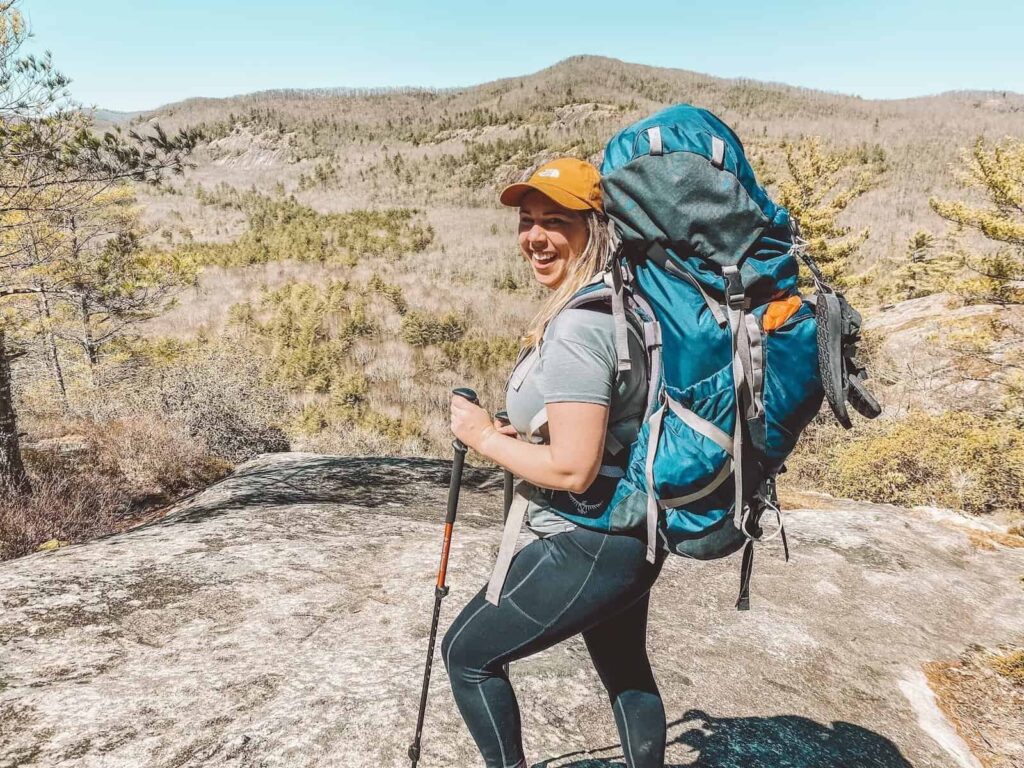
Backpacking offers an incredible way to experience the world, but for beginners, the process of planning can seem daunting. Whether you’re trekking through remote wilderness, exploring distant cities, or hopping between countries, the key to a successful backpacking trip lies in careful preparation. The good news? You don’t need to be an expert to start your journey. With a bit of research, smart packing, and flexibility, you can embark on an unforgettable adventure. Here’s your essential guide to planning your first backpacking trip.
1. Choosing Your Destination
The first step in planning any backpacking trip is selecting your destination. Whether you’re drawn to the jungles of Southeast Asia, the rugged mountains of South America, or the ancient cities of Europe, choosing the right place is critical to having a smooth and enjoyable trip.
- Consider Your Interests: Do you enjoy hiking, nature, culture, or history? Think about what excites you most. For nature lovers, national parks or mountain ranges could be perfect. For those looking to immerse themselves in history or vibrant city life, destinations like Italy, India, or Japan might be more appealing.
- Check for Safety and Accessibility: Some destinations are more backpacker-friendly than others. Look for countries with well-developed infrastructure for travelers, like hostels, transport networks, and information for solo adventurers. Websites like Lonely Planet or travel blogs can give you an idea of the safety and logistics of a place.
- Budget-Friendly Options: Research the cost of traveling to and within your chosen destination. Southeast Asia, Eastern Europe, and Central America are generally more affordable, while Western Europe or Japan might be on the pricier side. Make sure you factor in accommodation, food, transportation, and activities into your budget.
2. Create a Flexible Itinerary
While spontaneity is one of the joys of backpacking, a little structure can go a long way. As a beginner, creating a loose itinerary will give you a solid foundation while allowing room for flexibility.
- Plan Your Key Stops: Start by identifying a few must-see destinations or activities. Whether it’s a famous landmark, a local festival, or a hiking trail, these key experiences will form the backbone of your trip.
- Allow Flexibility: It’s important to leave room for unplanned detours. You may meet fellow travelers who recommend other destinations, or you might simply find a place that inspires you to stay longer than expected.
- Transportation Options: Depending on your destination, research the best ways to get around. For example, buses and trains are great options for traveling between cities in Europe, while flights may be necessary for longer distances. In countries like Southeast Asia or South America, local buses, boats, and even hitchhiking might be options worth exploring.
3. Packing Light and Smart
One of the golden rules of backpacking is traveling light. Packing only what you need and ensuring your gear is functional and versatile will make your trip much more enjoyable.
- The Right Backpack: Choose a backpack that fits your body comfortably and is large enough to carry your essentials. A 40–50 liter backpack is usually sufficient for a few weeks of travel. Make sure it has multiple compartments for organization and is durable for long-term use.
- Essential Gear: Prioritize comfort and practicality over fashion. Pack lightweight, moisture-wicking clothes that can be easily layered. Bring sturdy shoes suitable for walking or hiking, a rain jacket, and a sleeping bag if you’re camping. Don’t forget essentials like a first aid kit, toiletries, a headlamp, and a power bank for charging your devices.
- Pack Only the Basics: Avoid overpacking. Remember, you’ll be carrying everything on your back. Stick to a few versatile clothing items, a small amount of toiletries, and only the gear that’s absolutely necessary. Consider packing multi-purpose items, such as a scarf that can be used as a towel or blanket.
4. Staying Safe While Backpacking
Safety is a top priority when backpacking, especially for beginners. While most destinations are relatively safe for travelers, it’s always important to stay vigilant and prepared.
- Travel Insurance: Always invest in comprehensive travel insurance that covers medical emergencies, cancellations, and lost belongings. It’s a small cost for peace of mind.
- Health Precautions: Depending on where you’re going, you may need vaccinations (like hepatitis or yellow fever). Check the CDC website for health recommendations before traveling. Also, bring along any prescription medications you may need.
- Know Emergency Contacts: Have emergency contact numbers for your embassy, local hospitals, and your family. It’s also wise to share your itinerary and contact information with a friend or family member who can reach you if needed.
- Be Aware of Scams: In some countries, backpackers are more vulnerable to scams or pickpocketing. Stay alert in crowded areas, use money belts, and keep your valuables in a secure place.
5. Money Management
Managing your finances while traveling is a key skill for backpackers, especially when you’re moving from place to place.
- Budgeting: Set a daily budget for accommodation, food, transportation, and activities. Apps like Trail Wallet or Travel Mapper can help you track your spending and ensure you’re sticking to your budget.
- ATM and Currency Exchange: Use ATMs to withdraw local currency, as this often gives you the best exchange rate. Avoid exchanging money at the airport or hotels, where fees tend to be higher.
- Emergency Fund: Always keep a backup credit card or a small amount of emergency cash separate from your main wallet. This will ensure you’re prepared if you lose your wallet or run into unforeseen expenses.
6. Embrace the Backpacker Lifestyle
Backpacking isn’t just about where you go; it’s about how you experience the world. Embrace the lifestyle by being open-minded, adaptable, and engaged with the people and places around you.
- Stay in Hostels or Guesthouses: These are not only budget-friendly but also great for meeting other travelers. Many hostels offer group tours, social events, or cooking classes, which are perfect for making new friends.
- Be Open to New Experiences: Backpacking often means stepping out of your comfort zone. Try new foods, take part in local traditions, or join group activities like free walking tours or volunteering.
- Take Your Time: Don’t rush through your trip. Allow yourself to immerse fully in the local culture, meet new people, and explore at your own pace.
Conclusion
Backpacking as a beginner can feel overwhelming, but with careful planning and the right mindset, it’s an incredible way to explore the world on a budget. Choose your destination wisely, pack light, and stay flexible—these are the keys to a successful adventure. Don’t forget to prioritize safety, manage your finances carefully, and most importantly, enjoy the journey. Whether you’re exploring new cities or trekking through the wilderness, backpacking offers a unique and rewarding way to travel—one step at a time.


